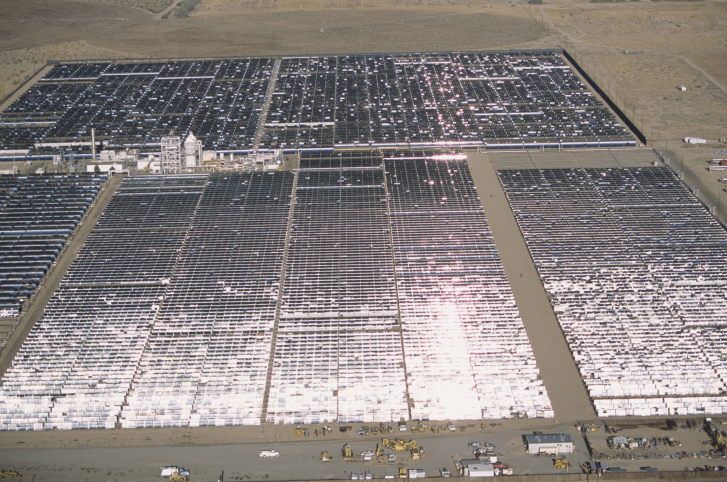
SunEdison currently operates in two divisions: semiconductor materials and solar energy. By shedding the semiconductor business, the company expects to generate more shareholder value:
This new structure will allow each independent company to pursue its shareholder value generating strategies, focus on key markets and customers, optimize capital structures, and enhance access to growth capital for each company in the years ahead. Given the significant accomplishments of the businesses to date, it is the right time for this transaction which we believe maximizes value to our investors while benefiting our customers and employees.
Could this be the beginning of trend in the solar sector? First Solar Inc. (NASDAQ: FSLR) does not use silicon in its solar panels, so there is no chance that it will follow suit. Its recent acquisition of cadmium telluride (CdTe) intellectual property from General Electric Co. (NYSE: GE) gives it essentially total control over its technology.
SunPower Corp. (NASDAQ: SPWR) does use silicon in manufacturing its solar cells and modules, but the silicon is supplied by third-party vendors. SunPower has chosen to enter the downstream end of the business — designing and installing solar projects — rather than getting involved in the wafer-making end of the solar market.
Chinese solar companies are a different story. Many manufacture their own silicon wafers and sell silicon to other makers. Trina Solar Ltd. (NYSE: TSL), LDK Solar Co. Ltd. (NYSE: LDK), JA Solar Holdings Co. Ltd. (NASDAQ: JASO) and Canadian Solar Inc. (NASDAQ: CSIQ) all manufacture and sell solar ingots, wafers or cells.
While it might make sense to spin off the wafer-making part of these Chinese firms, it may take some time for that to happen. One issue will be whether the government will support a consolidation of the wafer-making industry. Another is how the companies’ management will react to spinning off a portion of their business. If a spin-off is viewed as a defeat, achieving any sort of consolidation in China’s silicon industry will be a difficult sale.
SunEdison is one of a kind among U.S.-based solar companies, and spinning off a minority stake in its wafer business makes a lot of sense. It is a model that its Chinese peers could choose to follow because it would make sense for some of them as well. But with the government’s thumb on the scale, one never knows what to expect.
Shares of SunEdison are up more than 14% in premarket trading Thursday morning, at $7.80 in a 52-week range of $2.15 to $10.47.
The Average American Has No Idea How Much Money You Can Make Today (Sponsor)
The last few years made people forget how much banks and CD’s can pay. Meanwhile, interest rates have spiked and many can afford to pay you much more, but most are keeping yields low and hoping you won’t notice.
But there is good news. To win qualified customers, some accounts are paying almost 10x the national average! That’s an incredible way to keep your money safe and earn more at the same time. Our top pick for high yield savings accounts includes other benefits as well. You can earn up to 3.80% with a Checking & Savings Account today Sign up and get up to $300 with direct deposit. No account fees. FDIC Insured.
Click here to see how much more you could be earning on your savings today. It takes just a few minutes to open an account to make your money work for you.
Our top pick for high yield savings accounts includes other benefits as well. You can earn up to 4.00% with a Checking & Savings Account from Sofi. Sign up and get up to $300 with direct deposit. No account fees. FDIC Insured.
Thank you for reading! Have some feedback for us?
Contact the 24/7 Wall St. editorial team.




